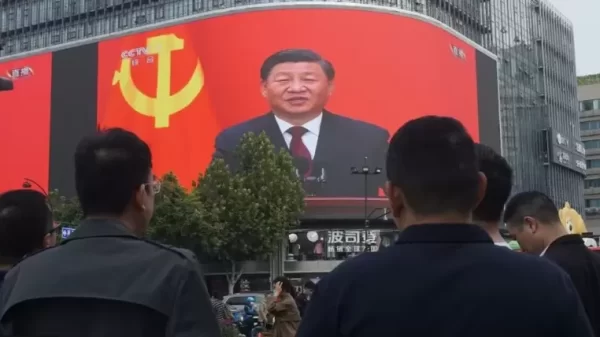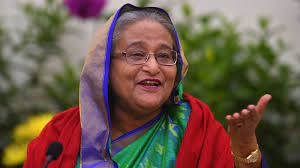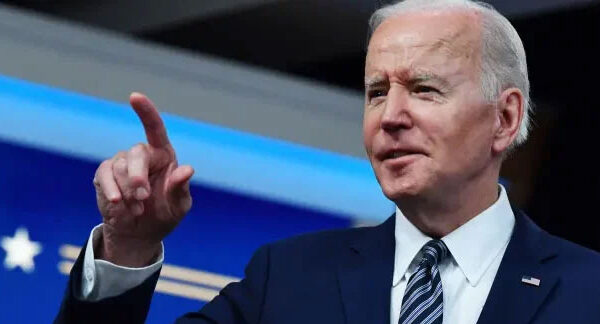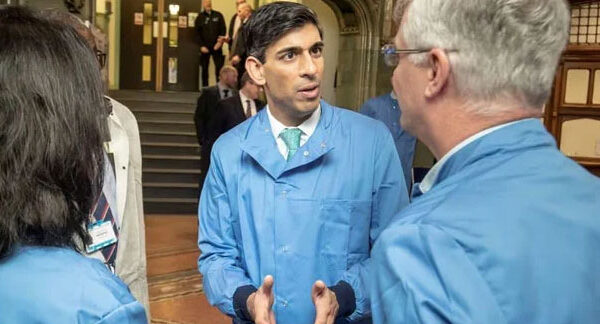Will America be able to live in a world under the influence of Xi Jinping?
Last week, Xi Jinping appeared before the global media as the most powerful Chinese leader of the past several decades.
The government’s intolerance towards foreign journalists is increasing in China, which has weakened the global media in China to some extent.
Before Jinping, China had a tradition of only two terms of the President. But they have broken this tradition. He now has a third term in his hands, that is, he has taken China under his control indefinitely.
But even though Jinping’s grip is getting stronger at the domestic level, the situation for China on the international stage has rarely been so volatile.
As much as Communist Party leader Xi Jinping has strengthened the dictatorial model in China, he has weakened the notion of globalization in our era that the more China is prosperous, the more free it will be.
This belief strengthened trade and relations between the US and China for decades.
It was also the basis of economic relations between the US and China, under which trade of half a trillion dollars annually occurred across the Pacific Ocean.
Now, as Xi Jinping begins his third term, he faces an escalating trade war with the US. The US has also taken steps to limit China’s access to its high-chip technology.
According to some analysts, the US is doing this as part of efforts to “stop China’s rise at any cost” in the tech sector.
At the same time, China argues that America wants to maintain its position of superpower in the world and this distance in relations is coming due to that reason.
In the recently released new national security policy of the US President, it has been said that China is a bigger threat to the global order than Russia.
China’s invasion of Taiwan in America is now being seen as a possibility. Earlier America considered it a far cry.
Both the US and China have now come a long way from the days when leaders of both countries used to say that the common benefits of both countries were due to ideological differences and tensions between the world’s superpower (USA) and the fast-moving country (China). But it will be heavy.
Then how did the situation get to this point?
It is no less ironic that it is President Joe Biden who is consistently taking a tough attitude towards China. They have blocked China’s access to US semiconductor technology. This is certainly the biggest blow to trade and relations between the two countries.
When Biden was a US senator in the 1990s, he was a supporter of better trade relations with China and was instrumental in getting China to join the World Trade Organization (WTO).
In 2000, when he went on a visit to Shanghai, while talking to reporters there, he said, “China is not our enemy.”
Biden’s opinion was based on the belief that if trade with China increased, it would go into a system of global values and shared beliefs and this would lead to China’s rise as a responsible global power.
China got WTO membership under the supervision of former President George W Bush. It was like a crown of pride at the head of the policy of increasing relations with China for many decades. After Richard Nixon, every President of America supported this policy.
America’s corporate sector was also lobbying to open up China’s market, the British American Tobacco Company was eager to sell its products to Chinese customers, and the US-China Business Council was eyeing China’s cheap and order-abiding workers. But it was.
Those Americans who were in danger of losing their jobs, or anyone else who was concerned about human rights in China, were explained by saying that China was being given WTO membership on an ideological basis.
Bush was the governor of Texas at the time. During the presidential election campaign in May 2000, he gave a speech to Boeing employees.
“Business with China is not just a matter of commerce but also a matter of trust,” he said.
“Economic freedom inculcates the habit of liberty in the people. And the habits of liberty give rise to the hope of democracy.”
For some time it was thought that the increasing prosperity in China would bring some political change, if only limited.
After WTO membership, the Internet, like the rest of the world, gave Chinese people the opportunity to debate and protest in ways that were not even possible to imagine before.
Bill Clinton also made a famous comment that it is very difficult for the Communist Party to crack down on the Internet.
When Xi Jinping began his first term as General Secretary of the Communist Party in 2012, global media cameras were watching China’s skyscrapers. Cultural exchanges were taking place and China’s growing new middle class was seen as proof that China was fundamentally changing and that these changes were good.
But it was in Xi Jinping’s first term that there were signs that Jinping saw those newly emerging ‘habits of freedom’ not as a welcome sign of globalization, but as something against which any cost could be fought. But it is necessary to fight.
Document No. 9 (Document 9) was issued by the Central Office of the Communist Party shortly after Jinping’s first term. It mentioned seven such evils from which China was to be protected. These include ‘global values’, the principle of civil society outside the control of the party and freedom of the press.
Xi Jinping believes that the disintegration of the Soviet Union was due to his inability to maintain his socialist ideology and to be ideologically weak.
For them the shared global value was the Trojan horse that would lead the Chinese Communists down the same path the Soviet Union followed. Jinping responded swiftly and without compromise – he implemented totalitarianism and one-party authority without any shame.








